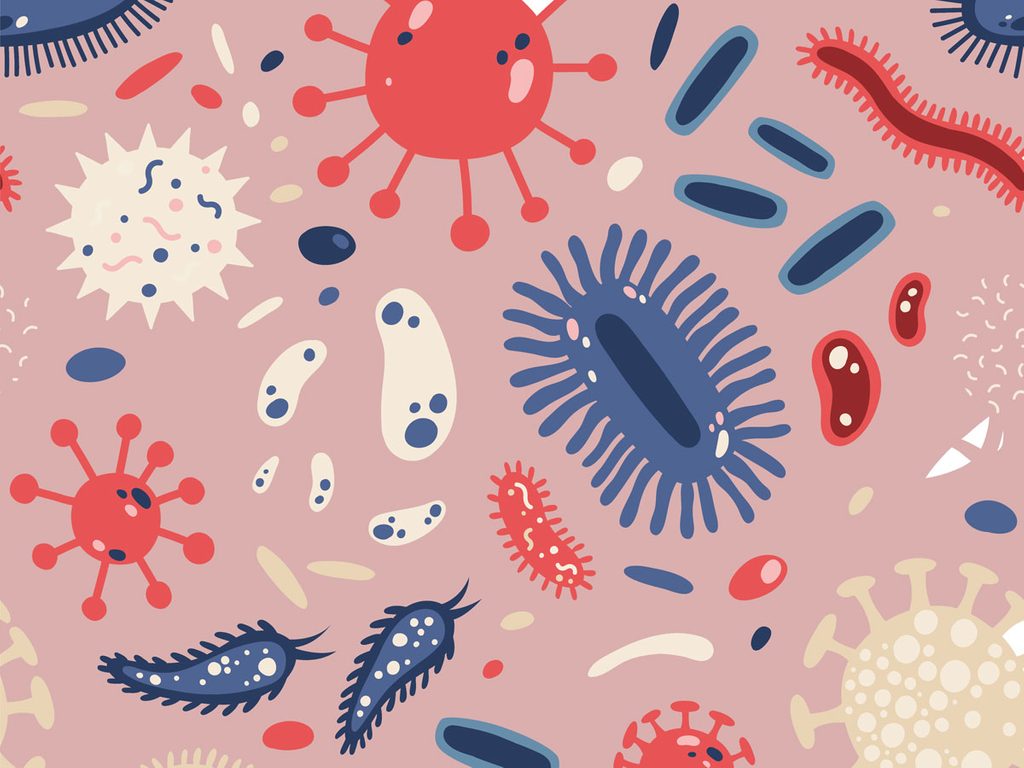How to Build a Strong Microbiome to Improve Your Gut Health

Registered dietitians and twin sisters Rebecca and Reisha Harper reveal the best foods to give your gut microbiome a healthy boost.
As we start getting into the groove of quarantine, think of this time as an opportunity to reset your diet. Good health is essential for not only living your best life but also having a long and high-quality life. Your gut is incredibly complex, and the state of your gut has a significant impact on your overall health. Studies show a link between gut health and the immune system. An unhealthy gut is linked to a variety of diseases and conditions, including autoimmune diseases, cancer, endocrine disorders, mental health issues, mood disorders and skin conditions.
So, how does your gut microbiome play into this?
The micro-organisms living in your intestines are specifically referred to as your “gut microbiome.” About 300 to 500 different bacterial species live in your digestive tract. Many of these bacteria are highly beneficial and necessary for maintaining a healthy body, but some of these bacteria are actually harmful to your health. A healthy gut includes having a wide variety of “good” bacteria (probiotics), which is essential for enhancing your immune system, preventing disease, improving symptoms of depression and battling obesity.
Your gut microbiome is sensitive and can be damaged by different factors. First of all, an unhealthy diet that includes artificial sweeteners, high-sugar foods, high-fructose corn syrup, processed foods, refined carbs and a lack of essential nutrients reduces the amount of “good” bacteria (probiotics) in your gut. An imbalance in your gut microbiome (between “good” and “bad” bacteria) damages your gut, which ultimately affects many aspects of your health, including your brain, heart, hormone levels, immune system, nutrient absorption, skin and weight.
But there’s good news:
You can have a significant positive impact on your gut microbiome and overall health, and it’s about making small changes every day that add up. To help repair an unbalanced gut microbiome, it’s essential to include both prebiotics and probiotics in your diet, through food and supplements, every day.
“Good” bacteria (probiotics) in your gut feed on prebiotics, which are fermentable fibres that help increase “good” bacteria and improve your gut microbiome. Eating a wide variety of plant foods, such as asparagus, bananas, chicory root powder, garlic, Jerusalem artichokes, leeks and onions, and foods made with whole wheat flour will help ensure that your gut has the necessary prebiotics to feed “good” bacteria. Include fermented foods, such as kefir, kimchi, kombucha, miso, natto, pickles, sauerkraut, sourdough bread, tempeh and yogurt, in your diet to help provide your gut with essential probiotics. Together, this is a great way to help heal your gut and improve your gut microbiome.
Additionally, starve “bad” bacteria in your gut by limiting your total daily sugar intake to less than six teaspoons a day (if you’re a woman) or less than nine teaspoons a day (if you’re a man) and eliminating pop (including artificially sweetened sodas) from your diet. It’s also beneficial to take a high-quality, all-natural, taste-free fibre supplement, but remember to go slowly because the body needs time to adjust. Blending fibre supplements into dips, smoothies and soups is a great way to help you get used to increasing your daily fibre intake.
Rebecca and Reisha Harper are twins and registered dietitians with a special focus on nutrition for health, beauty and aging well. For more info visit their website.







